
Catalog Advanced Search
178 Results
-
Annual, virtual conference covering sepsis-related topics and offering RN CE Contact Hours
Description
*Over 350,000 U.S. adults killed each year.*
*The leading cause of death in U.S. hospitals.*
*Over 49 million people worldwide affected each year.*
This is sepsis.
Join us this September to learn more about how you can help better identify, diagnose, and treat this deadly condition in your practice. Mortality increases 4-9% for every hour that treatment is delayed. YOU can help save lives and limbs by staying up-to-date on current recommendations and guidelines around sepsis by joining us at the 5th Annual Sepsis Alliance Summit.
For the first time, Sepsis Alliance Summit is joining forces with Sepsis Forum to offer a third day focused on global viewpoints on sepsis.
Are you ready to learn with us? Register today for this free, virtual conference. You’ll earn RN CE credits and improve your practice, benefiting sepsis patients.
FREE Nursing CE Credits Offered!
Continuing nursing education credits will be available, as will post-event access to resources, ideas, and innovations to improve sepsis care and antimicrobial stewardship. Sepsis Alliance is a Provider approved by the California Board of Registered Nursing for 9.7 contact hours, Provider Number CEP17068.
Conference Supporters:
Sepsis Alliance gratefully acknowledges the support provided for this conference by the following sponsors:

Agenda
September 25, 2024
September 26, 2024Time (ET) Session Title Presenter 10:00-10:10 Opening Remarks Hannah Sass
Sepsis Alliance10:10-10:40 Keynote 10:45-11:25 More info to come 11:30-12:00 Recce Pharmaceuticals Sponsored Session: New Frontiers in Sepsis and Urosepsis Treatment: Synthetic Anti-Infectives to Combat Superbugs James Graham
Managing Director & Chief Executive Officer, Recce Pharmaceuticals12:00-12:15 Break 12:15-12:45 More info to come 12:50-1:20 More info to come 1:25-1:55 bioMérieux Sponsored Session 1:55-2:10 Break 2:10-2:40 More info to come 2:45-3:15 More info to come 3:20-3:35
Track 1: Roche Sponsored Session: Immunotherapy of Sepsis Guided by Biomarkers
Track 2: Flosonics Medical Sponsored SessionTrack 1: Richard S. Hotchkiss, MD
Professor of Anesthesiology, Medicine, and Surgery Washington University School of Medicine3:40-3:55 InflaRx Sponsored Session: For Some Patients, COVID-19 Remains a Serious Threat Bruce P. Burnett, PhD
VP, Head of Medical Affairs
InflaRx4:00-4:30 More info to come 4:35-4:50 Closing Remarks Hannah Sass
Sepsis Alliance -
Includes a Live Web Event on 08/21/2024 at 11:00 AM (PDT)
Content presented by Cytovale (No CE Credits)
Description:
Join us for a sponsored webinar featuring Cytovale’s IntelliSep sepsis test where we will talk about how this novel technology is changing the way patients are triaged in the ED, leading to faster, more accurate detection of sepsis and appropriate care. You will learn insights into what makes sepsis so challenging to diagnose and how IntelliSep can help. You will also meet leaders from Our Lady of the Lake Regional Medical Center, including Dr. Hollis O’Neal, who will share the impact that IntelliSep has had on their patients, day-to-day processes, and the organization broadly. For more information, visit our website cytovale.com.
Target Audience:
Nurses, advanced practice providers, physicians, emergency responders, pharmacists, medical technologists, respiratory therapists, physical/occupational therapists, infection prevention specialists, data/quality specialists, and more.

Hollis (Bud) O'Neal, MD
Associate Professor of Medicine
Louisiana State University Health Sciences Center
Bud O’Neal, MD, is an Associate Professor of Clinical Medicine at LSU Health Sciences Center (LSUHSC) and the Medical Director of Research for Our Lady of the Lake Regional Medical Center in Baton Rouge. Dr. O’Neal graduated from Vanderbilt University with a Bachelor of Science in Molecular Biology and Computer Science, and subsequently completed medical school at the Louisiana State University Health Sciences Center in New Orleans. He completed his internal medicine residency at the Louisiana State University Health Sciences Center in Baton Rouge. He then completed Pulmonary and Critical Care Medicine training at Vanderbilt University, where he also earned a Master of Science in Clinical Investigation. Dr. O’Neal is a member of the American Thoracic Society, American Society of Microbiology, and the American Academy for the Advancement of Science. He is an active investigator in clinical trials, including industry-sponsored, NIH-funded, and investigator-initiated studies. His research interests include sepsis diagnosis and treatment.
-
Includes a Live Web Event on 08/01/2024 at 9:00 AM (PDT)
This live, virtual event, will cover critical topics related to sepsis in immunocompromised patients, including a special focus on patients with cancer and patients with HIV.
Description:
Date: August 1, 2024
Time: 12:00 - 4:00 pm ET / 9:00 am - 1:00 pm PT
While sepsis is an equal-opportunity killer impacting the sick, the well, and people of all ages, some groups are more likely to be affected. Those with a weakened immune system[1] are one of the groups more likely to be affected by sepsis. Individuals with any type of primary immune deficiency, human immunodeficiency virus (HIV) or acquired immunodeficiency syndrome (AIDS), cancer, organ transplants, or those on certain types of medications, like corticosteroids, are all considered immunocompromised.[2]
Sepsis is a leading cause of death, killing an estimated 350,000 adults each year in the U.S..[3] Immunocompromised patients are even more likely to die from sepsis. For instance, sepsis mortality amongst cancer patients is 43-55% higher than in patients who do not have cancer.[4] Immunocompromised patients may also present differently than patients who are not immunocompromised, due to a variable inflammatory response, leading to potential delays in diagnosis and treatment.[5] This creates additional complications, as the risk of mortality from sepsis increases by 4-9% for every hour treatment is delayed.[6]
It is imperative that healthcare professionals understand the unique risks that immunocompromised patients have regarding sepsis to efficiently and accurately assess and diagnose sepsis in immunocompromised patients.
To address this issue, Sepsis Alliance is hosting the 2024 Sepsis Alliance Symposium: Sepsis in Immunocompromised Patients. This live, virtual event, will cover critical topics related to sepsis in immunocompromised patients, including a special focus on patients with cancer and patients with HIV. Attendees will have access to the most up-to-date clinical knowledge and treatment recommendations for these populations. The key outcome of this half-day event is to establish the burden of sepsis in immunocompromised patients and improve clinical outcomes for immunocompromised patients affected by sepsis.
Covered topics will include:
- Infection and sepsis burden and risks in the immunocompromised host;
- Sepsis recognition and care considerations in the immunocompromised patient;
- Sepsis and acute respiratory failure in patients with cancer;
- The effect of HIV infection on the host response to bacterial sepsis;
- Outcomes of patients with or without HIV infection.
Learning Objectives:
At the end of the activity, the learner should be able to:
- Identify the unique risks and burden of sepsis on immunocompromised patients;
- Summarize the steps to recognizing sepsis in immunocompromised patients;
- Restate the signs of acute respiratory failure in patients with cancer and sepsis;
- Summarize the relationship between HIV and the host response to bacterial sepsis.
Target Audience:
Nurses, advanced practice providers, physicians, emergency responders, pharmacists, medical technologists, respiratory therapists, physical/occupational therapists, infection prevention specialists, data/quality specialists, and more.
Supporters:
Sepsis Alliance gratefully acknowledges the support provided by Gilead and Baxter for this symposium.



Andre Kalil, MD, MPH, FACP, FIDSA, FCCM
Professor of Medicine, Director of Transplant Infectious Diseases Program
University of Nebraska Medical Center
Andre Kalil, MD, MPH, FACP, FIDSA, FCCM, is a practicing physician, professor of medicine, and researcher at the University of Nebraska Medical Center in Omaha, Nebraska. He is the Director of the Transplant Infectious Diseases Program at the University of Nebraska and has been the principal investigator for multiple randomized controlled trials in sepsis, pneumonia, and COVID-19.
Dr. Kalil has received numerous honors and awards, including the 2021 Scientist Laureate Award. He has been a peer-reviewer and editor for major medical journals and has published over three hundred PubMed indexed scientific articles.

Jared Greenberg, MD, MSc
Associate Professor, Department of Internal Medicine; Assistant Director, Medical Intensive Care Unit
Rush University Medical Center
Jared Greenberg MD, MSc is an Associate Professor in the Division of Pulmonary and Critical Care Medicine at Rush University Medical Center in Chicago, IL. He spends most of his clinical time providing care to patients in the medical Intensive Care Unit (ICU). He has conducted multiple studies dealing with sepsis in immunocompromised hosts. Dr. Greenberg’s current research interests involve exploring novel ways to communicate with families of critically ill patients in ways that help them make informed decisions for their loved ones. He is also interested in improving the ability of clinicians to identify families who are experiencing emotional distress during and after an ICU stay and to provide support that is individualized to their needs.

May Mei-Sheng Riley, MSN, MPH, RN, ACNP, CCRN, CIC, FAPIC
Infection Control Consultant
Stanford Health Care
May Riley, MSN, MPH, RN, ACNP, CCRN, CIC, FAPIC is an Infection Control Consultant at Stanford Health Care. May has been practicing in infection control and hospital epidemiology since 2005. She has extensive nursing experience, including medical/surgical, neurosurgery, trauma, liver transplant, and critical care nursing. May holds two master's degrees, an MSN in acute care from the UCLA School of Nursing and an MPH in epidemiology from the UCLA School of Public Health. Currently, she is a doctoral student at San Jose State University.
May's influence on infection prevention and infectious disease control is profound. Her contributions extend beyond her role as a subject matter expert on the ANA/CDC Work Group for Engaging Nurses in Antibiotic Stewardship, where she was an editorial contributor to the Prevention Strategist in 2016. May's impact is also evident in her numerous publications, including articles, books, book chapters, online education modules, and presentations. Her dedication to the infection control community is commendable.
May is also a Consulting Editor for the Journal of Critical Care Nursing Clinics of North America, published by Elsevier, and a Peer Reviewer for the Journal of AORN (Association of Perioperative Registered Nurses).

Lisa Torres, MD, MS
Assistant Professor, Division of Pulmonary and Critical Care Medicine
New York Presbyterian – Weill Cornell Medical Center
Lisa Torres, MD, MS, is an Assistant Professor in the Division of Pulmonary and Critical Care Medicine at New York Presbyterian – Weill Cornell Medical Center. She earned her MD from the Royal College of Surgeons in Ireland and an MS in Clinical and Translational Investigation from Weill Cornell Graduate School of Medical Sciences. After her internship in the Irish Health Service Executive, Dr. Torres completed residency training in Internal Medicine at the University of Texas Health Science Center at Houston, followed by a Fellowship in Pulmonary and Critical Care Medicine at New York Presbyterian - Weill Cornell Medical Center.
Dr. Torres is a clinician and translational investigator studying sepsis-induced immune suppression in critically ill patients. These “immune paralyzed” patients are at highest risk for opportunistic infections and mortality. Her work is focused on understanding alterations in immune cell metabolism and impaired cell signaling associated with immune paralysis. She is supported by an NIH K23 award from the National Institute of General Medical Sciences, the Houston Methodist – Weill Cornell Medicine Pilot Award, as well as the NIH Loan Repayment Program via the National Heart, Lung, and Blood Institute. Dr. Torres attends on both the Medical Intensive Care Unit and Pulmonary Consult Services at the New York-Presbyterian Weill Cornell and Lower Manhattan Hospital campuses.

Greg Martin, MD, MSc
Director, Predictive Health Institute and Center for Health Discovery and Wellbeing; Professor of Medicine; Executive Associate Division Director Division of Pulmonary, Allergy, Critical Care, and Sleep Medicine
Emory University School of Medicine
Greg Martin, MD, MSc, is Professor of Medicine in the Emory University School of Medicine and Associate Division Director for Critical Care at Emory University in the Division of Pulmonary, Allergy, Critical Care and Sleep Medicine. Dr. Martin conducts clinical and translational research in critically ill patients, with his primary interests being in sepsis, organ dysfunction syndromes, and acute respiratory distress syndrome. He is internationally recognized for his pioneering work in the epidemiology of critical illness and his innovative studies focused on improving patient-centered outcomes. He is the co-author of over 100 scientific articles, reviews, book chapters, editorials, and scientific abstracts, and has given lectures at institutional, national and international conferences. Dr. Martin completed his undergraduate studies at Duke University; medical school, residency and subspecialty fellowship training were completed at Vanderbilt University, and a post-graduate Master of Science in Clinical Research (MSCR) degree at Emory University.
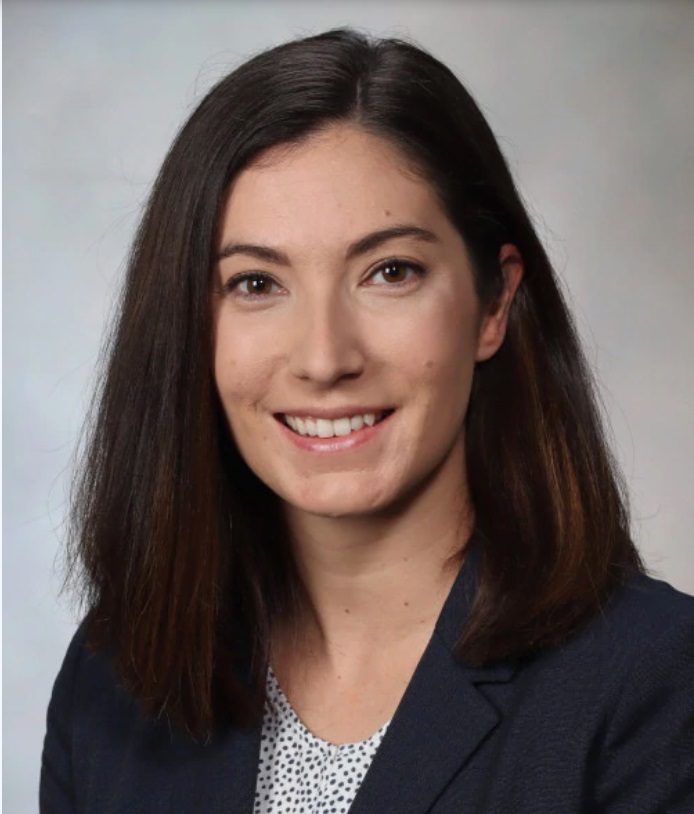
Jacqueline Squire, MD
Assistant Professor of Medicine, Consultant in the Division of Allergy, Department of Internal Medicine
Mayo Clinic Florida
Jacqueline Squire, MD, is an Assistant Professor of Medicine and consultant in the Department of Allergy and Immunology at Mayo Clinic in Jacksonville, Florida. Dr. Squire attended medical school at the University of Miami Miller School of Medicine, completed a pediatric residency at Duke University Hospital, and a fellowship in Allergy/Immunology at USF/Johns Hopkins All Children’s Hospital. Her primary clinical and research interest is in inborn errors of immunity and secondary immunodeficiency. She has authored multiple peer-reviewed articles published in the leading allergy and immunology journals and given regional and national presentations on immunodeficiency.
Agenda
Time (ET) Session Title Presenter 12:00-12:10 Opening Remarks & Patient Story Greg Hourigan
Sepsis Survivor12:10-12:40 Sepsis Survival and Outcomes in Immunocompromised and Transplant Patients Andre Kalil, MD, MPH, FACP, FIDSA, FCCM
Professor of Medicine, Director of Transplant Infectious Diseases Program at
University of Nebraska Medical Center12:40-1:10 Sepsis in Immunosuppressed Patients with Cancer Jared Greenberg, MD, MSc
Associate Professor, Department of Internal Medicine; Assistant Director, Medical Intensive Care Unit at Rush University Medical Center1:10-1:40 Invasive Fungal Infections Among Immunocompromised Patients: Focusing on Infection Control and Risk Mitigation May Mei-Sheng Riley, MSN, MPH, RN, ACNP, CCRN, CIC, FAPIC
Infection Control Consultant at Stanford Health Care1:40-2:20 BREAK 2:20-2:50 Sepsis-Induced Immune Paralysis Lisa Torres, MD, MS
Assistant Professor, Division of Pulmonary and Critical Care Medicine at New York Presbyterian - Weill Cornell Medical Center2:50-3:20 How HIV Infection Alters Sepsis Greg Martin, MD, MSc
Director, Predictive Health Institute and Center for Health Discovery and Wellbeing; Professor of Medicine; Executive Associate Division Director Division of Pulmonary, Allergy, Critical Care, and Sleep Medicine at Emory University School of Medicine3:20-3:50 Infection, Sepsis Risks, and Current Guidelines in Patients with Asplenia Jacqueline Squire, MD
Assistant Professor of Medicine, Consultant in the Division of Allergy, Department of Internal Medicine at Mayo Clinic Florida3:50-4:00 Closing Remarks and Key Takeaways Provider approved by the California Board of Registered Nursing, Provider Number CEP17068 for 3.6 contact hours.
Other healthcare professionals will receive a certificate of attendance for 3.0 contact hours.
Medical Disclaimer
The information on or available through this site is intended for educational purposes only. Sepsis Alliance does not represent or guarantee that information on or available through this site is applicable to any specific patient’s care or treatment. The educational content on or available through this site does not constitute medical advice from a physician and is not to be used as a substitute for treatment or advice from a practicing physician or other healthcare professional. Sepsis Alliance recommends users consult their physician or healthcare professional regarding any questions about whether the information on or available through this site might apply to their individual treatment or care.
-
Attendees will learn how one organization was able to leverage organizational initiatives to drive meaningful change.
Description:
Date: July 18, 2024
Time: 2:00 - 3:00 pm ET / 11:00 am - 12:00 pm PT
In anticipation of Sepsis Awareness Month in September, this presentation will showcase innovative strategies for promoting sepsis awareness, quality improvement, and patient safety within healthcare teams during Sepsis Awareness Month and year-round. Attendees will learn how one organization was able to leverage organizational initiatives to drive meaningful change. Through unique and engaging awareness and advocacy efforts that promoted collaboration with key stakeholders and leaned into the power of community partnerships to coordinate inter-disciplinary efforts, this team built a successful advocacy campaign.
Utilizing available resources to plan and execute impactful sepsis awareness events that promote continuous improvement and patient safety will also be shared. Whether you’re a healthcare professional, administrator, or advocate, this presentation will equip you with the knowledge and tools needed to make a difference during Sepsis Awareness Month and in the fight against sepsis year-round. Get started now with Sepsis Alliance's Sepsis Awareness Month resources at SepsisAwarenessMonth.org.
Learning Objectives:
At the end of the activity, the learner should be able to:
- List organizational initiatives that can be used to promote sepsis awareness, quality improvement, and patient safety in a healthcare team;
- Identify ways to collaborate with key stakeholders in healthcare advocacy events;
- Describe how to use available resources to plan a successful sepsis advocacy and awareness event that promotes continuous improvement.
Target Audience:
Nurses, advanced practice providers, physicians, emergency responders, pharmacists, medical technologists, respiratory therapists, physical/occupational therapists, infection prevention specialists, data/quality specialists, and more.
Webinar Supporters:
Sepsis Alliance gratefully acknowledges the support provided for this webinar by the Sepsis Alliance Institute sponsors.


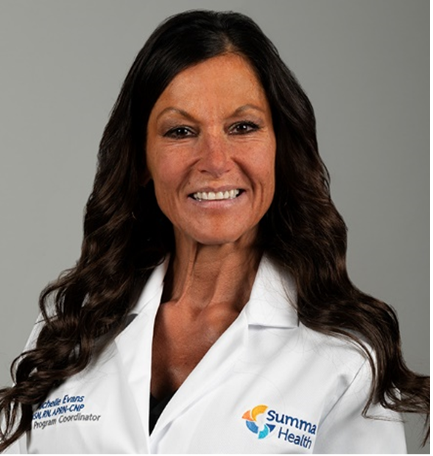
Michelle Evans, MSN, RN, APRN, NP-C
APP Sepsis Program Coordinator
Summa Health
Michelle Evans, MSN, RN, APRN, NP-C, obtained her ADN in 1999 and BSN in 2007, both from Walsh University. She earned her Masters as an Advanced Practice Nurse in 2010 from Malone University and is board-certified through the ANCC as a Family Nurse Practitioner. Her clinical background is in Critical Care/Rapid Response and Hospitalist Medicine. Michelle discovered her passion for sepsis care while serving as the Intensivist Program Coordinator for Aultman Hospital from 2002-2009. She has been the Sepsis Program Coordinator for Summa Health System in Akron since January 2021. Michelle resides in Canton, Ohio, with her husband Dave, and has three adult sons.
Provider approved by the California Board of Registered Nursing, Provider Number CEP17068 for 1.2 contact hours.
Other healthcare professionals will receive a certificate of attendance for 1.0 contact hour.
Medical Disclaimer
The information on or available through this site is intended for educational purposes only. Sepsis Alliance does not represent or guarantee that information on or available through this site is applicable to any specific patient’s care or treatment. The educational content on or available through this site does not constitute medical advice from a physician and is not to be used as a substitute for treatment or advice from a practicing physician or other healthcare professional. Sepsis Alliance recommends users consult their physician or healthcare professional regarding any questions about whether the information on or available through this site might apply to their individual treatment or care.
-
Learn how one organization created a unique QI initiative to promote peer-to-peer learning by collaboratively learning from defects, discovering barriers, and creating action plans.
Description:
Date: June 14, 2024
Time: 2:00 - 3:00 pm ET / 11:00 am - 12:00 pm PT
Continuous quality improvement (QI) is at the heart of good patient care and working toward improved patient outcomes for those affected by infections and sepsis. At University Hospitals, a unique QI initiative was created to promote peer-to-peer learning by collaboratively learning from defects, discovering barriers, and creating action plans. Details on how the QI project was launched alongside the real-world examples of peer-to-peer sepsis quality improvement initiatives in action will be shared by the team at University Hospitals. Attendees will gain insight into the essential components of such initiatives, including setting objectives and key results, and discover how they drive measurable improvements in patient care.
Learning Objectives:
At the end of the activity, the learner should be able to:
- Articulate the components of a peer-to-peer quality improvement (QI) initiative;
- Identify objectives and key results as part of a QI project;
- Describe the process of learning from defects.
Target Audience:
Nurses, advanced practice providers, physicians, emergency responders, pharmacists, medical technologists, respiratory therapists, physical/occupational therapists, infection prevention specialists, data/quality specialists, and more.
Webinar Supporters:
Sepsis Alliance gratefully acknowledges the support provided for this webinar by the Sepsis Alliance Institute sponsors.



Peter Pronovost, MD, PhD, FCCM
Chief Quality & Clinical Transformation Officer; Veale Distinguished Chair in Leadership and Clinical Transformation
University Hospitals
Peter Pronovost, MD, PhD, FCCM, is a world-renowned patient safety champion, physician executive, critical care physician, and prolific researcher with more than 1,000 peer-reviewed publications. He is also an innovator who has founded several technology companies and a thought leader informing U.S. and global health policy.
Dr. Pronovost’s transformative work leveraging checklists to reduce central line-associated bloodstream infections has saved thousands of lives and earned him national acclaim. This life-saving intervention has been implemented across the U.S., and as a result, central line-associated infections that used to kill as many people as breast or prostate cancer have been reduced by 80 percent. In recognition of this innovation, his highest-profile accolades include being named one of the 100 most influential people in the world by Time Magazine and receiving a coveted MacArthur Foundation “genius grant.”
While serving as Chief Clinical Transformation Officer at University Hospitals Health System in Cleveland and as a Professor in the Schools of Medicine, Nursing, and Management at Case Western Reserve University, Dr. Pronovost developed a checklist to make visible defects in value and deployed a management and accountability system to eliminate those defects. This system reduced the annual cost of care for Medicare patients by 30% over three years while improving quality. In 2022, Dr. Pronovost lead the efforts that culminated in University Hospitals winning the American Hospital Association’s Quest for Quality award, the industry’s most prestigious honor recognizing its member organizations for their commitment to quality. He was named the Veale Distinguished Chair in Leadership and Clinical Transformation in 2023.
Along with the deputy secretary of Health and Human Services (HHS), Dr. Pronovost co-chaired the Healthcare Quality Summit, an initiative created in response to President Trump’s White House Executive Order to modernize and improve quality measures for HHS, Veterans Affairs and Department of Defense. Dr. Pronovost also serves as a member of the Presidents Council for Science and Technology Patient Safety Working Group that is producing recommendations for improving safety to President Biden.
Dr. Pronovost previously served as Johns Hopkins Medicine Senior Vice President for Patient Safety and Quality and was the founder and director of the Johns Hopkins Medicine Armstrong Institute for Patient Safety and Quality. He also served as the Senior Vice President for Clinical Strategy and Chief Medical Officer for UnitedHealthcare.
Dr. Pronovost was elected to the National Academy of Medicine in 2011, to the American Academy of Nursing, and has received multiple honorary degrees. He is an advisor to the World Health Organization’s World Alliance for Patient Safety and regularly addresses the U.S. Congress on patient safety issues. He is a founder of VisICU, a tele ICU company purchased by Philips; and Doctella, a health information platform for remote patient monitoring purchased by Masimo. He is a strategic advisor for several healthcare technology and venture capital companies. Today, he is known as one of the most influential executives and physician leaders in healthcare and one of the Top 25 innovators in healthcare.
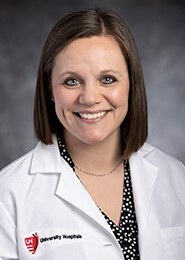
Sarah Knowles, DNP, APRN, ACCNS-AG, GERO-BC, WCC
Principal Project Manager, Quality Institute; Co-Chair Research and Innovation Council; UH Well-Being Ambassador
University Hospitals Cleveland Medical Center
Sarah Knowles, DNP, APRN, ACCNS-AG, GERO-BC, WCC, has worked at University Hospitals since 2006 and is currently a Principal Project Manager in the Quality Institute. In her grant funded role she has overseen the development and implementation of two system wide quality improvement initiatives – Learning from Defects (LFDs) and Peer to Peer Learning (P2P). Through the creation of these two programs, she has demonstrated her ability to lead groups of various sizes through change as they strive towards both process and practice improvement. Dr. Knowles has a long tenure of working with nurses at all levels in professional development activities. She is a respected clinical nurse specialist specializing in the adult and geriatric populations. Her research has focused on staff nurse acceptance and use of continuous vital signs monitoring (CVSM). She holds certifications as an adult/gero clinical nurse specialist in wellness through acute care, gerontological nursing, and wound care.
Dr. Knowles received her BSN from the University of Toledo, her MSN with a focus in Nursing Education from Cleveland State University, her post master’s certificate as a clinical nurse specialist from Kent State University, and her DNP from Ursuline College.
Provider approved by the California Board of Registered Nursing, Provider Number CEP17068 for 1.2 contact hours.
Other healthcare professionals will receive a certificate of attendance for 1.0 contact hour.
Medical Disclaimer
The information on or available through this site is intended for educational purposes only. Sepsis Alliance does not represent or guarantee that information on or available through this site is applicable to any specific patient’s care or treatment. The educational content on or available through this site does not constitute medical advice from a physician and is not to be used as a substitute for treatment or advice from a practicing physician or other healthcare professional. Sepsis Alliance recommends users consult their physician or healthcare professional regarding any questions about whether the information on or available through this site might apply to their individual treatment or care.
-
bioMérieux Sponsored Webinar: The Impact of Rapid Diagnostics on Antimicrobial Stewardship Practices
Content provided by bioMérieux (No CE credits offered)
Webinar Description:
This sponsored webinar will explore the history of Antimicrobial Susceptibility Testing (AST) and what the future of patient care and antimicrobial stewardship could look like with fast AST. The presenter will discuss the limitations of traditional AST methods, which often lead to delays, the overuse of broad-spectrum antibiotics, and the rise of antimicrobial resistance. He will then highlight how fast AST and rapid diagnostics can empower stewardship efforts by providing actionable results within hours.
No CE credits are offered for this sponsored webinar. Content was determined by the sponsor.
Webinar Sponsor:
Sepsis Alliance gratefully acknowledges the support provided by bioMérieux for this sponsored webinar.


Shawn MacVane, PharmD
Lead Medical Scientist
bioMérieux
Shawn MacVane, PharmD is an infectious diseases (ID) pharmacist and outcomes researcher with over 10 years of experience in antimicrobial stewardship and microbiology diagnostics. Currently, he is Lead Medical Scientist, Global Medical Affairs - Microbiology at bioMerieux where he focuses on the design and execution of health and economic outcomes research (HEOR) studies and using real-world data to understand medical value of in vitro diagnostic products. Prior to this, he was ID/AMS pharmacist where his research focused on the implementation and optimization of molecular rapid diagnostic tests for bloodstream infections. He is a graduate of the University of Connecticut and completed a fellowship in Anti-Infective Research & Development.
-
This live, virtual event, scheduled for May 16, 2024, will cover critical topics related to sepsis in maternal and neonatal patients, offering attendees the most up-to-date clinical knowledge and treatment recommendations for these populations.
Description:
Date: May 16, 2024
Time: 12:00 - 4:00 pm ET / 9:00 am - 1:00 pm PT
Sepsis, an indiscriminate threat that can strike anyone regardless of their health status or age, tends to disproportionately affect certain populations. Pregnant individuals and newborns are among those at higher risk of sepsis-related complications. Sepsis accounts for at least 261,000 maternal deaths each year worldwide, accounting for approximately 11% of all maternal deaths. Across the U.S. between 2017-2019, 14.3% of pregnancy-related deaths were due to infection or sepsis. Maternal sepsis ranks as the second leading cause of maternal fatalities, and globally sepsis is the number one cause of mortality in newborns and young infants.
Maternal sepsis typically occurs when an infection takes hold in the aftermath of childbirth, whether it be at the site of a C-section incision, a tear, or another postpartum wound, occurring in the days or weeks following delivery. Any infection, such as Strep B, pneumonia, or a urinary tract infection, occurring during pregnancy or in the postpartum period, can also potentially escalate into sepsis. Infections can be passed from the birthing parent to child during pregnancy, labor, and delivery, putting the infant also at risk for developing sepsis.
It is imperative that healthcare professionals understand the unique risks that maternal and neonatal patients have regarding sepsis to efficiently and accurately assess and diagnose sepsis.
To address this issue, Sepsis Alliance is hosting the 2024 Sepsis Alliance Symposium: Maternal and Neonatal Sepsis. This live, virtual event, scheduled for May 16, 2024, will cover critical topics related to sepsis in maternal and neonatal patients, offering attendees the most up-to-date clinical knowledge and treatment recommendations for these populations. The key outcome of this half-day event is to establish the burden of sepsis in maternal and neonatal patients and improve clinical outcomes for patients affected by sepsis.
Covered topics will include:
- Perinatal outcomes in patients with sepsis during pregnancy;
- Improving maternal equity, health outcomes related to infections and sepsis, and antimicrobial stewardship through health policy;
- Clinical diagnosis and management of neonatal sepsis;
- Discharge and transitions of care for birthing parents and newborns.
Learning Objectives:
At the end of the activity, the learner should be able to:
- Identify the unique risks and burden of sepsis in pregnancy and newborns;
- Summarize the steps to recognizing sepsis in maternal patients and newborns;
- Restate how health policies can be used to improve maternal equity and patient outcomes;
- Summarize the relationship between healthy equity and maternal and neonatal outcomes and sepsis.
Target Audience:
Nurses, advanced practice providers, physicians, emergency responders, pharmacists, medical technologists, respiratory therapists, physical/occupational therapists, infection prevention specialists, data/quality specialists, and more.
Symposium Supporter:
Sepsis Alliance gratefully acknowledges the support provided for this symposium by Baxter and Ohio Hospital Association.



Beth Battaglino, RN-C
CEO
HealthyWomen
Beth Battaglino, RN-C, is the chief executive officer of HealthyWomen. Beth brings a unique combination of sharp business expertise and women’s health insight to her leadership of the organization. She has worked in the healthcare industry for more than 25 years,
helping to define and drive public education programs on a broad range of women’s health issues.
Beth launched and has expanded the HealthyWomen brand. As a result of her leadership, HealthyWomen was recognized as one of the top 100 women’s health websites by Oprah magazine and by Forbes for three consecutive years. HealthyWomen now connects to millions of women across the country through its wide program distribution and innovative use of technology.
She is also a practicing nurse in maternal child health at Riverview Medical Center-Hackensack Meridian Health in Red Bank, NJ. In addition to her nursing degree, Beth holds degrees in political science, business, and public administration from Marymount University.

Stephanie Gaw, MD, PhD
Associate Professor of Maternal Fetal Medicine, Department of Obstetrics, Gynecology, and Reproductive Sciences
University of California San Francisco
Stephanie Gaw, MD, PhD is an Associate Professor of Maternal Fetal Medicine in the Department of Obstetrics, Gynecology and Reproductive Sciences at University of California, San Francisco. She completed her medical degree and PhD in Microbiology and Immunology at the Albert Einstein College of Medicine, residency in OB/GYN at UCSF, and fellowship in Maternal Fetal Medicine at UCLA.
Dr. Gaw has a long-standing interest in global infectious disease and maternal-child health starting from her service as a Peace Corps volunteer in Honduras. Her group conducts translational research to understand how perinatal infections impact maternal-fetal immunity, placental function, and pregnancy outcomes. Her research has been supported by the National Institutes of Health, Reproductive Scientist Development Program, Foundation for SMFM, CDC Foundation, Bill and Melinda Gates Foundation, and gifts from generous individuals. She has over 95 peer-reviewed publications and has served on CDC, WHO and NIH advisory groups for Zika, COVID-19, and tuberculosis in pregnancy.

Michael W. Kuzniewicz , MD, MPH
Assistant Professor, Neonatology, Department of Pediatrics
University of California School of Medicine, San Francisco
Michael Kuzniewicz, MD, MPH, is the Director of the Perinatal Research Unit at the Division of Research for Kaiser Permanente Northern California and a clinical neonatologist. Dr. Kuzniewicz’s research has focused on improving clinical care through epidemiologic studies and predictive modelling utilizing the electronic data resources of Kaiser Permanente Northern California. His primary areas of interest include management of hyperbilirubinemia, early-onset neonatal sepsis/antibiotic stewardship, and hypoxic-ischemic encephalopathy.

Elliott Main, MD
Founding Medical Director of the California Maternal Quality Care Collaborative, Clinical Professor, Department of Ob/Gyn
Stanford University School of Medicine
Elliott Main, MD, trained in obstetrics and gynecology and Maternal-Fetal Medicine at Washington University in St. Louis and the University of Pennsylvania. He has been a faculty member at the University of Pennsylvania and the University of California, San Francisco. He is currently Professor of Obstetrics and Gynecology at Stanford University.
From its inception 12 years ago, he has directed the California Maternal Quality Care Collaborative based at Stanford and serves as the Chair of the California Pregnancy-Associated Mortality Review Committee. He also co-chairs the CDC-ACOG Maternal Mortality working group with Dr. William Callaghan. He has served or chaired national committees on Maternal Quality Measurement and Value Based Payment for ACOG, the AMA, The Joint Commission, Leap Frog, and CMS.
Nationally, he serves as the Implementation Director for the Alliance for Innovation in Maternal Health (or AIM) initiative, the national multi-disciplinary project for reducing maternal mortality based at ACOG. In 2013, Dr. Main received the ACOG Distinguished Service Award for his work in quality improvement.

Paulomi (Mimi) Niles, CNM, MPH, PhD
Assistant Professor and Certified Nurse-midwife
New York University
Mimi (Paulomi) Niles, PhD, MPH, CNM, is Assistant Professor at NYU Rory Meyers College of Nursing. She is a theorist, educator, researcher, and certified nurse-midwife. Her work explores the potential of integrated models of midwifery care in creating health equity in historically disenfranchised communities. She is trained in utilizing critical feminist theory, as theorized by Black and brown feminist scholars, and qualitative research methods to implement policy and programming rooted in critical feminist and anti-oppression frameworks. As a researcher, she hopes to generate midwifery knowledge as a tool to build equity and liberation for marginalized and minoritized people and grow the profession of midwifery. For the last decade, Professor Niles has been a practicing midwife, serving childbearing women and families, within the largest public health network in the nation. She continues to provide clinical care as a full-scope midwife working in a collaborative midwife-physician practice setting, within the largest municipal hospital system in the nation, NYC Health + Hospitals.
Professor Niles is an active member of the midwifery community locally, nationally, and globally. She was recently appointed to serve as a member of the Americas Regional Committee of the International Confederation of Midwives (ICM) as a research expert. Locally, she serves on the New York City Maternal Mortality and Morbidity Review Committee and is an active member of the Brooklyn Borough President Maternal Health Taskforce Midwifery Committee. She grew up as a first-generation immigrant in Queens, NY, mothers two young adults, and honors her mother’s legacy as a nurse-midwife in India.

Kaitlin Walden
Mother of Shayla, Pediatric Sepsis Survivor
Sepsis Alliance Connect
Kaitlin Walden is a mother and caregiver to her daughter Shayla, a newborn sepsis survivor. She is a mother of three, military spouse, and a healthcare professional for over 13 years. When Kaitlin isn’t caregiving, she spends time advocating for sepsis awareness, teaching CPR classes, baking, painting, and making memories with her family.

Amanda Williams, MD, MPH, FACOG
Clinical Innovations Advisor, CMQCC; Adjunct Clinical Associate Professor
Stanford University School of Medicine
Amanda P. Williams, MD, MPH, FACOG, is the Clinical Innovation Advisor with the California Maternal Quality Care Collaborative (CMQCC) based at Stanford University School of Medicine, where she also is an adjunct faculty member in the Department of Obstetrics and Gynecology.
Dr. Williams previously served as Medical Director at Mahmee, a tech-enabled maternal health company dedicated to improving health equity and empowering families with wraparound care during the pregnancy and postpartum period. In this role, she oversaw the company’s programming, while fostering institutional partnerships, developing new business opportunities and opportunities and supporting investor outreach.
Prior to joining Mahmee, Dr. Williams was a practicing OBGYN at Kaiser Permanente Oakland Medical Center where she served as Director of Maternity Services. Additionally, she oversaw the maternity continuum across Kaiser’s 15 medical centers in Northern California. She has also served on several state and national committees, such as the California Pregnancy-Associated Mortality Review, the California Surgeon General’s perinatal redesign stakeholder group, and the National Quality Forum Maternal Morbidity and Mortality work group.
Dr. Williams is a Magna Cum Laude graduate of Harvard University where she majored in American Medical History and Biochemistry. She completed her medical degree at Emory University School of Medicine where she also received a master’s degree in public health, focusing on health policy and management. She completed her graduate medical training in Obstetrics and Gynecology at the University of California, San Francisco.
Dr. Williams is a prominent voice on maternal health and health equity. Her expertise has been showcased at prestigious institutions like Rush, Harvard, Stanford, Georgetown, and Howard Universities. A sought-after speaker, she has been featured at The Future of Maternal Care Summit, The Fortune 500 Most Powerful Women Next Generation Conference, The Doula Expo, and Mino Fest. Dr. Williams has been interviewed on national television outlets such as PBS, BET, CNN, and MSNBC and in print media such as The New York Times and The Washington Post.

James L. Wynn, MD
Professor of Pediatrics
University of Florida
James L. Wynn, MD, is a Professor of Pediatrics and Pathology, Immunology, and Experimental Medicine. He earned his medical degree and completed his clinical training in Pediatrics and Neonatal-Perinatal Medicine at the University of Florida (2002-2008). Dr. Wynn has published over 100 peer-reviewed manuscripts, reviews, book chapters, and editorials on the investigation of sepsis in newborn and premature infants.
Provider approved by the California Board of Registered Nursing, Provider Number CEP17068 for 3.6 contact hours.
Other healthcare professionals will receive a certificate of attendance for 3.0 contact hours.
Medical Disclaimer
The information on or available through this site is intended for educational purposes only. Sepsis Alliance does not represent or guarantee that information on or available through this site is applicable to any specific patient’s care or treatment. The educational content on or available through this site does not constitute medical advice from a physician and is not to be used as a substitute for treatment or advice from a practicing physician or other healthcare professional. Sepsis Alliance recommends users consult their physician or healthcare professional regarding any questions about whether the information on or available through this site might apply to their individual treatment or care.
Agenda
Time (ET) Session Title Presenter 12:00-12:30 Opening Remarks & Patient Story: A Mother’s Perspective: Survival and Advocacy After Newborn Sepsis Beth Battaglino, RN-C
CEO, HealthyWomen
Kaitlin Walden
Shayla's Mom & Sepsis Advocate12:30-1:00 Navigating Neonatal Sepsis: Epidemiology, Pathophysiology, and Management James L Wynn, MD
Professor of Pediatrics
University of Florida1:00-1:30 Perinatal Outcomes After Maternal Sepsis Stephanie Gaw, MD, PhD
Associate Professor of Maternal Fetal Medicine, Department of Obstetrics, Gynecology, and Reproductive Sciences, University of California San Francisco1:30-1:45 Break 1:45-2:25 Maternal Sepsis Collaborative: California and Michigan Elliott Main, MD
Founding Medical Director of the California Maternal Quality Care Collaborative, Clinical Professor, Department of Ob/Gyn, Stanford University School of Medicine2:25-2:55 Operationalizing Perinatal Equity Amanda Williams, MD, MPH, FACOG
Clinical Innovations Advisor, CMQCC; Adjunct Clinical Associate Professor, Stanford University School of Medicine2:55-3:25 Development and Implementation of Kaiser Permanente Neonatal Early-Onset Sepsis Calculator Michael W. Kuzniewicz , MD, MPH
Assistant Professor, Neonatology, Department of Pediatrics, University of California School of Medicine, San Francisco3:25-3:55 Midwives: Providing Equitable, Inclusive Care to Prevent Perinatal Infections and Sepsis Paulomi (Mimi) Niles, CNM, MPH, PhD
Assistant Professor and Certified Nurse-midwife, New York University3:55-4:00 Closing Remarks and Key Takeaways Find additional resources to help prevent infections and sepsis in mothers, birthing people, and neonates.
Maternal Sepsis Week Landing Page
Sepsis Alliance Maternal Sepsis Courses:
- Maternal Sepsis: Epidemiology, Early Detection, and Equity Considerations
- AIM to Improve: The Importance of Patient Safety Bundles for Treating Sepsis in Obstetrical Care
- I Gave Birth. Then a Life-Threatening Infection Landed Me Back in the Hospital
- Sepsis in Pregnancy
- COVID-19 in Pregnancy: Best Practices for Management of the Maternal Population
- Maternal Sepsis
Maternal Sepsis Patient Stories:
-
Recorded On: 04/30/2024
Content provided by Beckman Coulter (No CE credits offered)
Webinar Description:
In this follow-up to the 2023 webinar, sponsored by Beckman Coulter, take a deeper dive into the CBC test results with a special focus on the white blood cells and differential. Uncover hidden gems and learn about clues pointing to sepsis recognition in order to provide the right care to the right patient at the right time. This sponsored webinar will focus on understanding novel components of the CBC with Diff and the Monocyte Distribution Width (MDW) marker for determining the severity of infection.
No CE credits are offered for this Sponsor Innovation Webinar.
Webinar Sponsor:
Sepsis Alliance gratefully acknowledges the support provided by Beckman Coulter for this Sponsor Innovation Webinar.

Kathleen M. Vollman, MSN, RN, CCNS, FCCM, FCNS, FAAN
Clinical Nurse Specialist/Consultant
ADVANCING NURSING, LLC
Kathleen M. Vollman, MSN, RN, CCNS, FCCM, FCNS, FAAN, is a critical care clinical nurse specialist and consultant. She has published and lectured nationally and internationally on a variety of pulmonary, critical care, work culture, and sepsis topics, as well as on prevention of health care acquired injuries, including pressure injury and CAUTIs/CLALBSIs and other HAIs. She serves as a subject matter expert on these topics for the American Hospital Association and Michigan Hospital Association. From 1989 to 2003, she functioned in the role of Clinical Nurse Specialist for the Medical ICUs at Henry Ford Hospital in Detroit, Michigan. Currently her company, ADVANCING NURSING LLC, is focused on creating empowered work environments for healthcare practitioners through the acquisition of better skills, attainment of greater knowledge, and implementation of process improvement.
-
Recorded On: 04/24/2024
An international task force sponsored by the Society of Critical Care Medicine (SCCM) recently released the new definitions for sepsis and septic shock in children, the Phoenix sepsis criteria. The evolution of pediatric sepsis criteria and the introduction of the Phoenix sepsis criteria will be presented in this webinar.
Description:
Date: April 24, 2024
Time: 2:00 - 3:00 pm ET / 11:00 am - 12:00 pm PT
Sepsis is a life-threatening condition and globally is one of the leading causes of death in children. An international task force sponsored by the Society of Critical Care Medicine (SCCM) recently released the new definitions for sepsis and septic shock in children, the Phoenix sepsis criteria. The evolution of pediatric sepsis criteria and the introduction of the Phoenix sepsis criteria will be presented in this webinar.
The research methodology behind the Phoenix criteria for sepsis and septic shock, drawing insights from an extensive international data analysis using machine learning approaches and validation across diverse clinical settings, will also be presented. Attendees will gain valuable insights into the potential implications of implementing the Phoenix sepsis criteria in clinical practice, including its role in facilitating clinical management, quality benchmarking, epidemiological surveillance, and research.
Learning Objectives:
At the end of the activity, the learner should be able to:
- Describe the evolution of the pediatric sepsis criteria and the development of the Phoenix sepsis criteria through a three-pronged effort by the SCCM Pediatric Sepsis Definition Task Force;
- Identify the key differences between the previous pediatric sepsis criteria and the updated Phoenix sepsis criteria;
- Enumerate the implications of implementing the Phoenix sepsis criteria in clinical practice, including its potential impact on clinical management, quality benchmarking, epidemiological surveillance, and research.
Target Audience:
Nurses, advanced practice providers, physicians, emergency responders, pharmacists, medical technologists, respiratory therapists, physical/occupational therapists, infection prevention specialists, data/quality specialists, and more.
Webinar Supporters:
Sepsis Alliance gratefully acknowledges the support provided for this webinar by the Sepsis Alliance Institute sponsors.



L. Nelson Sanchez-Pinto, MD, MBI, FAMIA
Associate Professor, Pediatrics (Critical Care) & Preventive Medicine (Health & Biomedical Informatics)
Northwestern University – Feinberg School of Medicine
L. Nelson Sanchez-Pinto, MD, MBI, FAMIA, is a pediatric critical care physician, biomedical informatics specialist, and data science researcher at Northwestern University Feinberg School of Medicine and Ann & Robert H. Lurie Children's Hospital of Chicago. His research focuses on applying data science and artificial intelligence approaches to improve the care provided to acutely ill patients, with a particular focus on pediatric sepsis.

Lauren Sorce, PhD, APRN-NP, CPNP, AC/PC, FCCM
Founder's Board Nurse Scientist; Senior Scientist, Division of Pediatric Critical Care; Associate Director of Nursing Research, Department of Nursing
Ann & Robert H. Lurie Children’s Hospital of Chicago
Lauren R. Sorce, PhD, RN, CPNP-AC/PC, FAAN, FCCM, is the senior scientist in the Division of Pediatric Critical Care Medicine and Associate Director for Nursing Research in the Department of Nursing at Ann & Robert H. Lurie Children’s Hospital of Chicago, where she also practices as a pediatric critical care nurse practitioner. She is an assistant professor at Northwestern University Feinberg School of Medicine. She trained as a pediatric clinical nurse specialist at Loyola University, followed by a post-masters pediatric nurse practitioner certificate and PhD from Rush University.
Dr. Sorce’s key contribution to critical care has been her extensive leadership as an advanced practice registered nurse (APRN). Starting her career as an APRN in the PICU early in the evolution of the role provided her many opportunities. She was instrumental in the exploration of the first acute care pediatric nurse practitioner (ACPNP) certification examination as well as the development of the first national certifying examination for the Pediatric Nursing Certification Board. Dr. Sorce also served as the vice-president of nursing on the board of directors of the World Federation of Pediatric Intensive and Critical Care Societies. She has served in leadership roles on numerous local and international committees as well as participating on editorial boards.
Dr. Sorce has served the Society of Critical Care Medicine (SCCM) in many capacities since joining in 1998. Prior to her role on Council, Dr. Sorce was recognized with numerous Presidential Citations, the Norma J. Shoemaker Research Grant, and the Norma J. Shoemaker Award for Nursing Excellence. In addition to nine years on the SCCM Council, she has been a member of the Congress Program Planning Committee and cochaired the 2015 Congress. She chaired the SCCM Strategic Planning Committee, Finance Committee, and Norma J. Shoemaker Research Grant Committee and served as the 2019 editor of SCCM’s newsmagazine, Critical Connections. Dr. Sorce has been funded to study corneal abrasions and has worked on numerous research teams to study post-intensive care syndrome, stress hydrocortisone in pediatric septic shock, prone positioning in pediatric acute respiratory distress syndrome, and criteria for convening family conferences in the PICU.
Provider approved by the California Board of Registered Nursing, Provider Number CEP17068 for 1.2 contact hours.
Other healthcare professionals will receive a certificate of attendance for 1.0 contact hours.
Medical Disclaimer
The information on or available through this site is intended for educational purposes only. Sepsis Alliance does not represent or guarantee that information on or available through this site is applicable to any specific patient’s care or treatment. The educational content on or available through this site does not constitute medical advice from a physician and is not to be used as a substitute for treatment or advice from a practicing physician or other healthcare professional. Sepsis Alliance recommends users consult their physician or healthcare professional regarding any questions about whether the information on or available through this site might apply to their individual treatment or care.
-
Sepsis Alliance’s 2023 publication, The Healthcare C-Suite AMR Market Report found that only 26% of U.S. healthcare leaders grade themselves an ‘A’ on their hospital or health system’s antimicrobial resistance (AMR) efforts. The Sepsis Alliance AMR Conference aims to provide the tools and knowledge to improve these AMR efforts.
Description
Sepsis Alliance’s 2023 publication, The Healthcare C-Suite AMR Market Report found that only 26% of U.S. healthcare leaders grade themselves an ‘A’ on their hospital or health system’s antimicrobial resistance (AMR) efforts. The Sepsis Alliance AMR Conference aims to provide the tools and knowledge to improve these AMR efforts.
Sepsis and the emergence of antimicrobial resistance (AMR) are intricately intertwined and pose significant challenges. Primary reliance on broad-spectrum antimicrobials is often the initial approach in sepsis treatment, yet, curbing unnecessary antimicrobial use is imperative in combating the escalating threat of AMR.
As AMR intensifies, the likelihood of infections progressing to sepsis increases, rendering sepsis cases progressively more resistant to treatment and consequently subjecting patients to adverse outcomes such as amputations and fatalities. Effectively managing this intricate clinical interplay, addressing the global AMR threat, and enhancing future outcomes necessitate collaborative efforts across sectors, ongoing innovation, and educational initiatives.
Opportunities for AMR education for clinicians, caregivers, patients, and the public are viewed by 77% of healthcare executives as necessary for combating AMR. Participation in the Sepsis Alliance AMR Conference offers a unique opportunity for attendees to explore innovative ideas, gain inspiration, and learn about practical technologies to manage sepsis and counteract the expanding challenge of antimicrobial resistance.
Topics covered will include:
- A One Health approach to combating AMR;
- Maternal and pediatric AMR;
- AMR in ambulatory and outpatient settings;
- The role of Sepsis Teams in AMS.
Learning Objectives:
At the conclusion of this event, learners will be able to:
- Explain the intricate link between sepsis and antimicrobial resistance;
- Identify tools and resources to champion responsible antimicrobial prescribing practices;
- Describe the pivotal role of healthcare executives and leadership in prioritizing, endorsing, and advancing stewardship efforts addressing antimicrobial resistance and sepsis;
- Restate methods for leadership to actively pursue inventive approaches that engage healthcare providers in initiatives aimed at tackling antimicrobial resistance and enhancing sepsis management.
FREE Nursing CE Credits Offered!
Continuing nursing education credits will be available, as will post-event access to resources, ideas, and innovations to improve sepsis care and antimicrobial stewardship. Sepsis Alliance is a Provider approved by the California Board of Registered Nursing for 9.7 contact hours, Provider Number CEP17068.
Conference Supporters:
Sepsis Alliance gratefully acknowledges the support provided for this conference by the following sponsors:
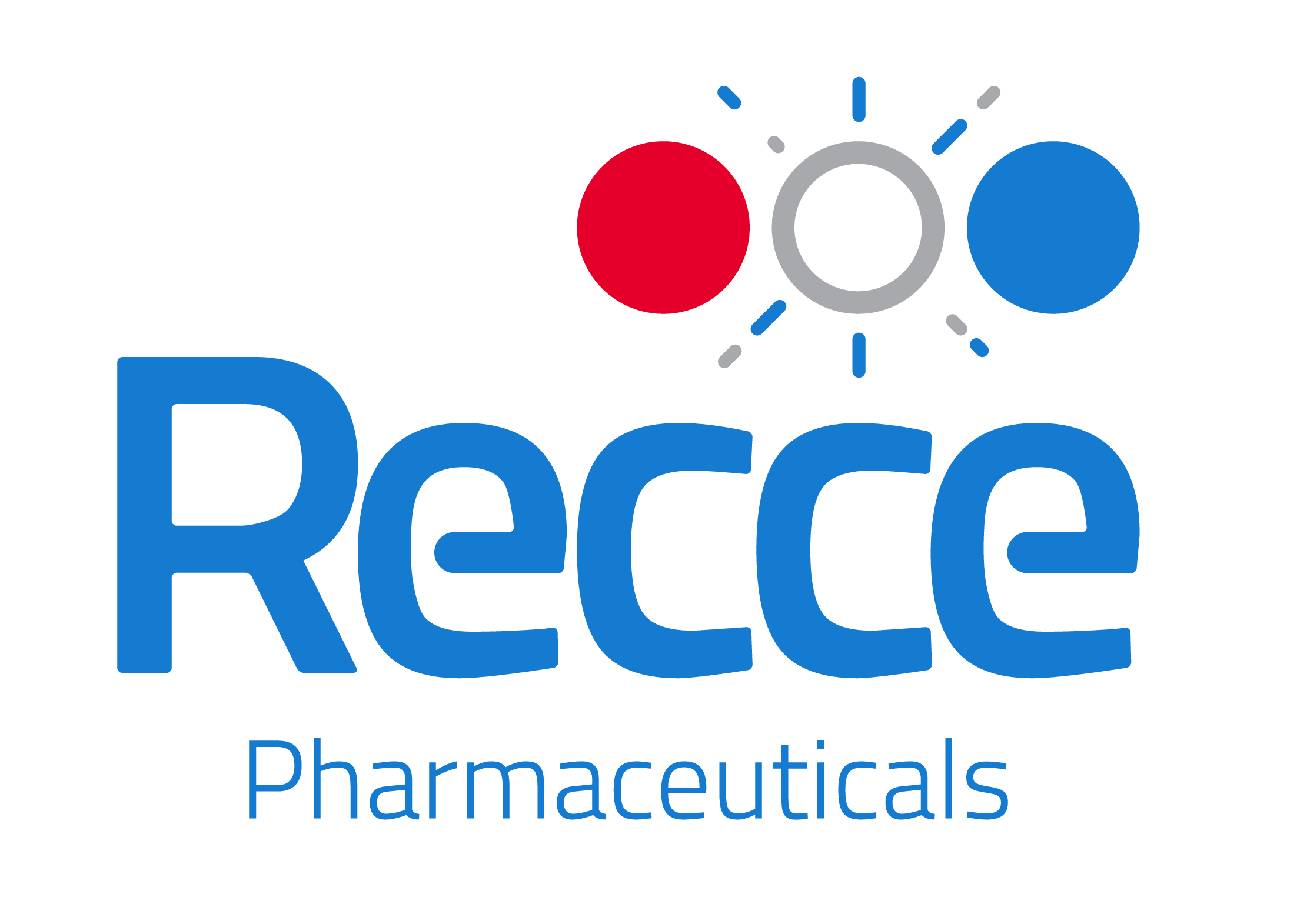

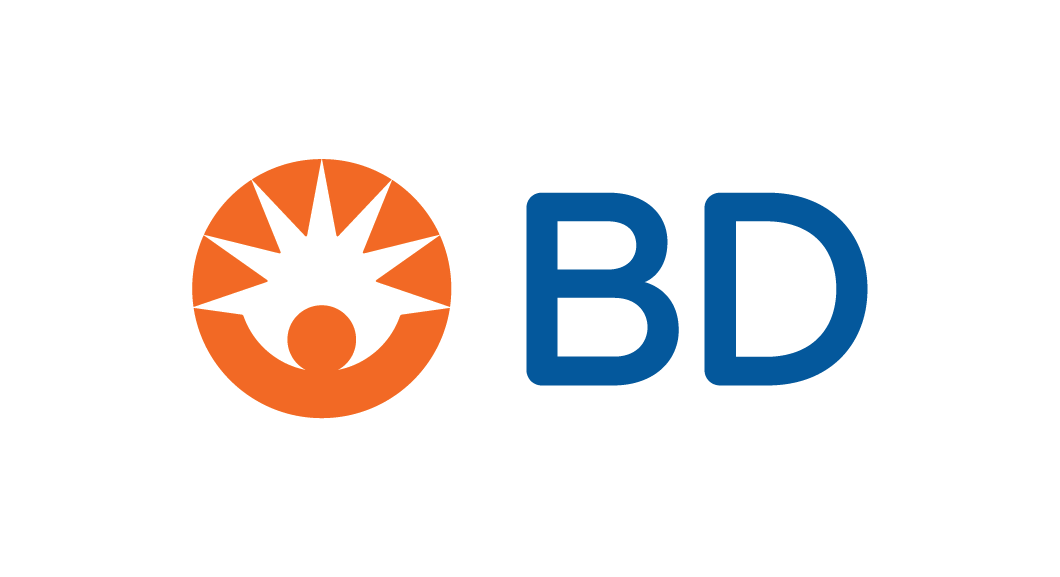


Agenda
April 10, 2024
Time (ET) Session Title Presenter 10:00-10:25 Opening Remarks 10:30-11:05 Keynote: AMR and One Health Through the Lens of Animal and Human Health (CE Session) Jason G. Newland, MD, MEd
Pediatric Infectious Diseases
Washington University in St. Louis
Paul J. Plummer, DVM, PhD, DACIVIM(LAIM) DECSRHM
Executive Director
National Institute of Antimicrobial Resistance Research and Education (NIAMRRE)11:10-11:45 One Health in Action: Minnesota’s Collaborative Approach to Antibiotic Stewardship (CE Session) Kristen Clark, DVM, MPH, DACVPM, CCRT
Director, Minnesota One Health Antibiotic Stewardship Collaborative, Minnesota Department of Health11:50-12:20 Recce Pharmaceuticals Sponsored Session: Beyond Existing Antibiotics: Finding a Solution to AMR and Sepsis James Graham
Managing Director & Chief Executive Officer, Recce Pharmaceuticals12:20-12:30 Break 12:30-1:00 Superbugged: A Personal Perspective (CE Session) Steffanie Strathdee, PhD
Associate Dean of Global Health Sciences, UCSD Department of Medicine
Thomas Patterson, PhD
Professor of Psychiatry, University of California, San Diego1:05-1:45 Antibiotic Stewardship at Hospital Discharge (CE Session) Emily Sydnor Spivak, MD, MHS, FIDSA, FSHEA
Associate Professor of Medicine, Division of Infectious Diseases University of Utah School of Medicine1:45-2:15 bioMérieux Sponsored Session: Protecting Our Future: Preventing & Treating Sepsis in a World of Drug-Resistant Infections Amanda L. Suchanek, Ph.D.
Medical Advisor, US Medical Affairs
bioMérieux2:15-2:25 Break 2:25-3:00 The Epidemiology of Antimicrobial Resistant Bacteria in the Pediatric Population (CE Session) Rachel Medernach, MD, MSCI
Assistant Professor
Rush University Medical Center3:05-3:45
CDC Core Elements of Hospital Antibiotic Stewardship and Hospital Sepsis Programs: What Nurses Need to Know and Do (CE Session)Mary Lou Manning, PhD, CRNP, CIC, FAPIC, FSHEA, FAAN
Professor
Thomas Jefferson University3:20-3:35
Sponsor Session (Details Coming Soon)3:45-4:25 Antimicrobial Stewardship: Important to All (CE Session) Alyssa R. Letourneau, MD, MPH, FIDSA
Assistant Professor of Medicine
Harvard Medical School4:25-4:30 Closing Remarks April 11, 2024







